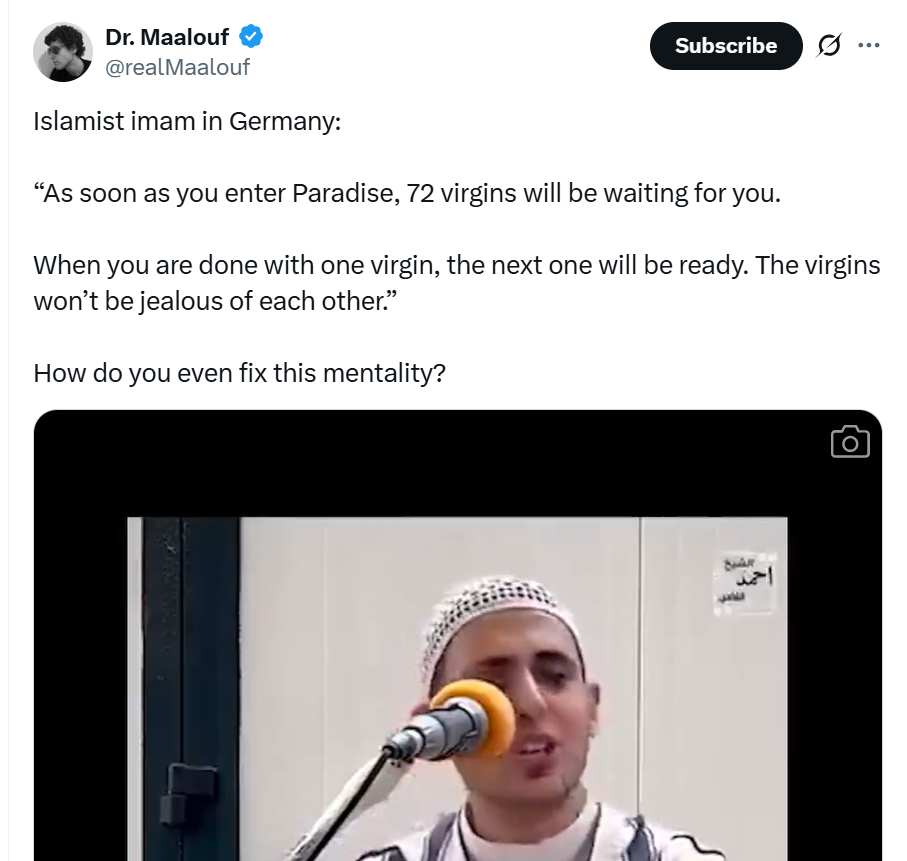
Addressing and “fixing” this mentality requires a multifaceted approach, starting with strong theological rebuttals from credible and respected Muslim scholars. It's essential to challenge extremist interpretations with contextually accurate, humane, and spiritually grounded teachings that reflect the core values of Islam—compassion, justice, and dignity for all. Promoting religious literacy within Muslim communities and supporting moderate voices can help create a bulwark against extremist ideologies. Importantly, these efforts should come from within the community, backed by state and civil society support, not imposed from the outside in a way that may appear patronizing or hostile.
 In parallel, integration policies must emphasize critical thinking, civic responsibility, and respect for universal human rights. education plays a central role—both in religious institutions and public schools—where discussions on ethics, gender equality, and pluralism should be encouraged. Mentalities shaped by extremist indoctrination don’t change overnight, but through sustained engagement, inclusive dialogue, and community resilience, societies can weaken the appeal of such dangerous worldviews and help ensure that religious faith is not weaponized for oppression or violence.
In parallel, integration policies must emphasize critical thinking, civic responsibility, and respect for universal human rights. education plays a central role—both in religious institutions and public schools—where discussions on ethics, gender equality, and pluralism should be encouraged. Mentalities shaped by extremist indoctrination don’t change overnight, but through sustained engagement, inclusive dialogue, and community resilience, societies can weaken the appeal of such dangerous worldviews and help ensure that religious faith is not weaponized for oppression or violence.




 click and follow Indiaherald WhatsApp channel
click and follow Indiaherald WhatsApp channel